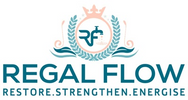
Reverse Osmosis vs Bottled Water: The Clear Winner for UK Homes
Tired of lugging bottled water like it's gym day? You might be wondering if a home filter can really beat the bottled kind. The short answer: reverse osmosis wins for purity, savings, and the planet. Before you commit, check out Reverse Osmosis: The Ultimate Guide to Water Purification for the full story on the technology. Otherwise, stick with us here as we break down why it might (or might not) be your perfect match.
Reverse Osmosis Water
Purification Process
Reverse osmosis, or RO if you’re on nickname terms, sounds a bit like a GCSE chemistry topic. But it’s actually pretty straightforward. It pushes tap water through a fine membrane that filters out 95–99% of impurities. We’re talking chlorine, lead, fluoride, even microplastics—gone. Most home RO systems go the extra mile with four stages of filtration:
-
A sediment filter catches grit and gunk.
-
A carbon filter tackles smells and chlorine.
-
The RO membrane does the heavy lifting.
-
And a final filter gives the water a clean finish.
In short? You get clear, safe water straight from your tap—no bottles required.
Quality and Safety
Here’s where RO really shines. The water is ultra-pure—sometimes too pure, if you like the taste of minerals. Some people say it’s a little flat, like fizzy water that’s lost its fizz. But if your local tap water tastes suspiciously like a swimming pool, or you’ve got older pipes, RO is a game-changer. Just a heads-up: you’ll need to change the filters once or twice a year. Keep it clean, and it’ll keep looking after you.
Bottled Water
Sources and Treatment
Bottled water often gets a posh image—waterfalls, glaciers, maybe a deer frolicking in the background. But not all bottled water comes from pristine springs. Some brands, like Highland Spring or Buxton, do use natural sources. Others? Just filtered tap water dressed up with fancy branding. Treatments vary too:
-
Spring water might be lightly filtered and zapped with ozone.
-
Purified water could go through RO or distillation.
-
Mineral water keeps its natural minerals and is barely touched.
So yes, some bottles are better than others—but it’s not always easy to tell which.
Quality and Safety
In the UK, bottled water is regulated by the Food Standards Agency. It has to meet high standards, sure—but there’s a catch. It’s only tested in batches. That means today’s bottle might taste crisp and clean, but tomorrow’s could be... a little off. Also, plastic bottles can break down in the heat. Left one in your car on a sunny day? That faint plasticky taste isn’t your imagination.
Comparative Analysis
Cost Considerations
Let’s break it down with some good old-fashioned maths. An RO system costs around £200–£500 upfront. Throw in annual filter changes at £50–£100, and you’re looking at about £350–£600 over five years. Now, bottled water. A family of four could easily spend £10–£15 a week, which adds up to over £2,600 in five years. So while RO feels like a splurge at first, it pays for itself fast.
Environmental Impact
Here’s the kicker: the UK chucks away 13 billion plastic bottles every year. That’s a mind-boggling number. Only 44% get recycled. The rest? They’re off to landfills or floating about in oceans, causing chaos. An RO system dramatically cuts down on plastic. Yes, it uses filters and electricity, but the impact is a fraction compared to bottled water. Want to go a step further? Get yourself a refillable stainless-steel bottle and you’re golden.
Convenience and Accessibility
Let’s be honest—bottled water is convenient. No plumbing. No waiting. Just grab and go. But that convenience comes at a price—literally and logistically. Carrying packs of water home? Squeezing them into your tiny kitchen cupboard? Bit of a nightmare. RO systems, on the other hand, give you filtered water on tap. No last-minute supermarket dashes. No "we're out of water again" panic. And in an emergency, when deliveries stop or shops run out? RO keeps you covered.
Conclusion: Making an Informed Choice
So, what’s the verdict? If you want reliable, clean water without mountains of plastic or endless trips to the shop, reverse osmosis is the smart choice. It’s more affordable long-term, easier on the planet, and works quietly in the background while you get on with your day. Still, bottled water has its moments. It’s handy for holidays, packed lunches, and car journeys. Just don’t rely on it full-time unless you’ve got deep pockets—and a good recycling bin. The best setup? Use RO at home and bottles when you're out and about.
Simple. Sustainable. Sorted.
More Reverse Osmosis info we think you'll love
Reverse Osmosis Advantages and Disadvantages
Reverse Osmosis in Wastewater Treatment
Reverse Osmosis vs Water Softener
Reverse Osmosis vs Alkaline Water
Can Reverse Osmosis Remove Fluoride?
Is Reverse Osmosis Water Safe to Drink?
What does Reverse Osmosis Remove?
Will Reverse Osmosis Soften Water?


Leave a comment